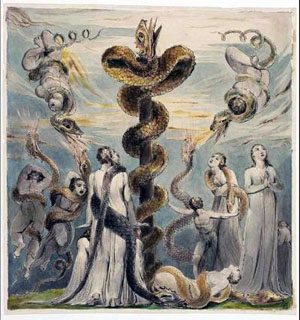 "The biblical doctrine of God's wrath is rooted in the doctrine of God as the good, wise and loving creator, who hates--yes, hates, and hates implacably--anything that spoils, defaces, distorts or damages his beautiful creation, and in particular anything that does that to his image-bearing creatures. If God does not hate racial prejudice, he is neither good nor loving. If God is not wrathful at child abuse, he is neither good nor loving If God is not utterly determined to root out from his creation, in an act of proper wrath and judgment, the arrogance that allows people to exploit, bomb, bully and enslave one another, he is neither loving, nor good, nor wise."
"The biblical doctrine of God's wrath is rooted in the doctrine of God as the good, wise and loving creator, who hates--yes, hates, and hates implacably--anything that spoils, defaces, distorts or damages his beautiful creation, and in particular anything that does that to his image-bearing creatures. If God does not hate racial prejudice, he is neither good nor loving. If God is not wrathful at child abuse, he is neither good nor loving If God is not utterly determined to root out from his creation, in an act of proper wrath and judgment, the arrogance that allows people to exploit, bomb, bully and enslave one another, he is neither loving, nor good, nor wise."-N.T. Wright
HT: Sibboleth
The only problem with Wright's explanation is that it revolves around man's actions toward man. True he mentions God's wrath towards "image-bearers," but I would contend that it is primarily in the face of man's opposition to God in those things. It is not that God is particularly loving, fist and foremost, in regard to His creatures per se, but that He is first and foremost loving of Himself (i.e. everything that is truely good and beautiful and holy). If anyone opposes what is good and right and true, namely, God Himself, the most loving thing that God can do is destroy them. In turn, in the sphere of redemption God will also destroy with His wrath everyone who harms His creation generally, and His people specifically. The major weakness with Wright's explanation seems to fail to take into account that God will pour out His wrath on "image-bearers." This is a very different explanation of the wrath of God than we find in 1 Thessalonians 1. There it is with view to everyone who hates Jesus Christ and, therefore, persecutes His people.
ReplyDeleteThe other problem is that Wright does not explain what the manifestation of God's wrath actually is. The BIble says it is "destruction." Now, if God destroys "image-bearers" for their defacing and destroying other image-bearers (i.e. that destroying image bearers is the reason for wrath) how then is Wright's statement accurate?
i guess the social gospel is still alive and well
ReplyDeleteWhere is that quote from?
ReplyDeleteSteve,
ReplyDeleteYou can find it here (http://www.fulcrum-anglican.org.uk/news/2007/20070423wright.cfm?doc=205).
I know this discussion was long ago, but I was just wondering where you get you basis for the statement:
ReplyDelete" It is not that God is particularly loving, fist and foremost, in regard to His creatures per se, but that He is first and foremost loving of Himself (i.e. everything that is truely good and beautiful and holy)."
I don't see scriptural evidence for this but do see it for the opposite, particularly in John 3:16.